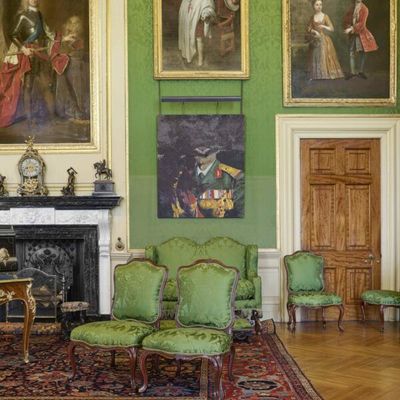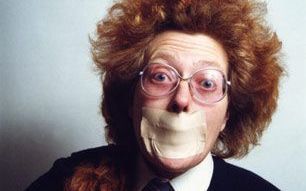The 4 Corners Festival has just finished its 13th annual celebration "bringing Belfast together". This initiative of the Christian faith communities certainly did that this year, not a mean feat in a city where culture can be used as a weapon.
Rev. David Campton of the 4 Corners Festival describes himself as "a prisoner of hope". This year's theme was 'Our Stories Towards a Culture of Hope', recognising perhaps that not everyone is in that hopeful stage yet and that trauma still exists in the wider city.
"Stories are shaping us from beyond the grave and in many places are just now starting to be recognised by different parts of the community," says David Campton. "There is a science to storytelling that is wired into our being. They have been used for centuries in Ireland to keep memory alive and shape-shift our narratives. The lack of being able to even be able to listen to other peoples stories, to those who live in the same city as us still resonates down into contemporary life."
A "Stories that Shape Us' event in the Clayton Hotel, on the penultimate night of the Festival, invited five public figures to select a book that was significant in their life. Actors from the Sanctuary Theatre in East Belfast read an excerpt from the book then the public figure had some time to explain why the work was significant.
TRAUMATIC READ: Rev Andrew James Forster, Bishop of Derry and Raphoe, at the Stories that Shape Us event. Pic by Neil Craigan
First up was Professor John Barry of Queen's who was described as "a recovering politician". His book of choice was The Communist Manifesto. Rarely have I heard the word 'Bourgeoisie' being repeated out into an audience with such fervor.
Dubliner Professor Barry explained he got to university over those more intelligent than him because his father had been in a work accident and this made him financially able to receive a scholarship. He travelled between the north and south of Dublin and discovered students his own age who had cars and called Heineken, 'Heiny'. In class, the Communist Manifesto gave him an explanation of why his experience was so different from his peers at University. He found out those who had the power made the rules and there was a different between charity and justice.
Next up Rev Andrew Forster, Bishop of Derry and Raphoe, who selected Babi Yar by Anatoly Kuznetsov a harrowing book about the Nazi execution of tens of thousands of Jews in 1941 in Ukraine. The extract chosen was horrific. Some of it was based on the eyewitness account of a twelve-year-old boy. He commented that humility, love, grace and morality are not found in political constraints — they are found in faith.
Blue Sky July by Nia Wyn, chosen by BBC broadcaster Tara Mills, is a mother’s story of hope and healing when dealing with a sick child. In this case the child is born with cerebral palsy. The work is a testament to the unconditional love of a mother determined to move forward and help her child even when experts are telling her the situation is hopeless.
The next book chosen by Steve Baker NI Minister How to Win Friends and Influence People by by Dale Carnegie did not get performed as he was ill but Máirtín Ó Muilleoir of this parish stepped in to be number four on the list.
David Campton said he had to assure Mr Baker’s office that replacing an NIO Minister with a former Sinn Féin MLA was not a political statement! Máirtín choose Slaughterhouse 5 by Kurt Vonnegut. He spoke of People's Democrary, a left political party who sold their publication at H-Block demonstration but who believed that if the armed struggles of the IRA stopped, support for Sinn Féin would surge — the notion of which was seen as surreal by young H-Block protesters. P.D. ran the Connolly Book Shop in Andersonstown — famously a squaddie from a Black Watch patrol went in one day and asked for Mr Connolly.
Máirtín found Slaughterhouse 5 among the revolutionary fare on sale in the Connolly Book shop in 1978. Among everything on their bookshelves this book stood out. It is a subversive anti-war novel. Its science fiction, post-modern style jumps across time to the aftermath of the fire-bombing of Dresden in February 1945. It was thought that Dresden, like Oxford, would never be targeted as it was beautiful university city famed for its china but thousands of civilians, many of them refugee, perished. Kurt Vonnegut was among American prisoners of war who, miraculously, survived in the underground abattoir where they were detained.
The evening finished with Nuala McKeever performing her choice The Gathering Light by Jennifer Donnelly in a Southern drawl. The book is about an intelligent young women living in the countryside in Upstate New York whose boyfriend she thinks is going to propose - a farmer's son who lives close by and everyone is after. It is the story of a young woman who can see her life roll one way or another based on the choices she makes about furthering her education or marrying the hunk at an early age. Will she be defined by the prison of her family experience or will she decide education might be the way to do something different with her life. If you know anyone on this cusp, it might be a book to give them
Elsewhere, 'Knitting the 4 Corners Together' event at Fitzroy Presbyterian gave space to some of the avid knitters in the city who knit blankets for the homeless and newborns, hats for asylum seekers, twiddle muffs for people with dementia or fake breasts for women who have had a mastectomy. As we sat and admired the work and meditation that knitting and crocheting in a group can bring, you felt better for a city with these women in it.
The final event I attended was the BBC service going out live from the beautiful chapel that used to be used by the Poor Clares in North Belfast. The atmosphere in the space is magical and one can only imagine using it on a daily basis and living within the walled monastery.
The beautiful #chapel previous of the Poor Clares in North Belfast for @4cornersbelfast live service on BBC this am #hiddengem pic.twitter.com/BBA5rtHD1D
— Bronagh Lawson (@CreativChangeNI) February 11, 2024
The 4 Corners Festival continues to reach out and connect people when the work of Bringing Belfast Together seems in many ways to be just starting.






